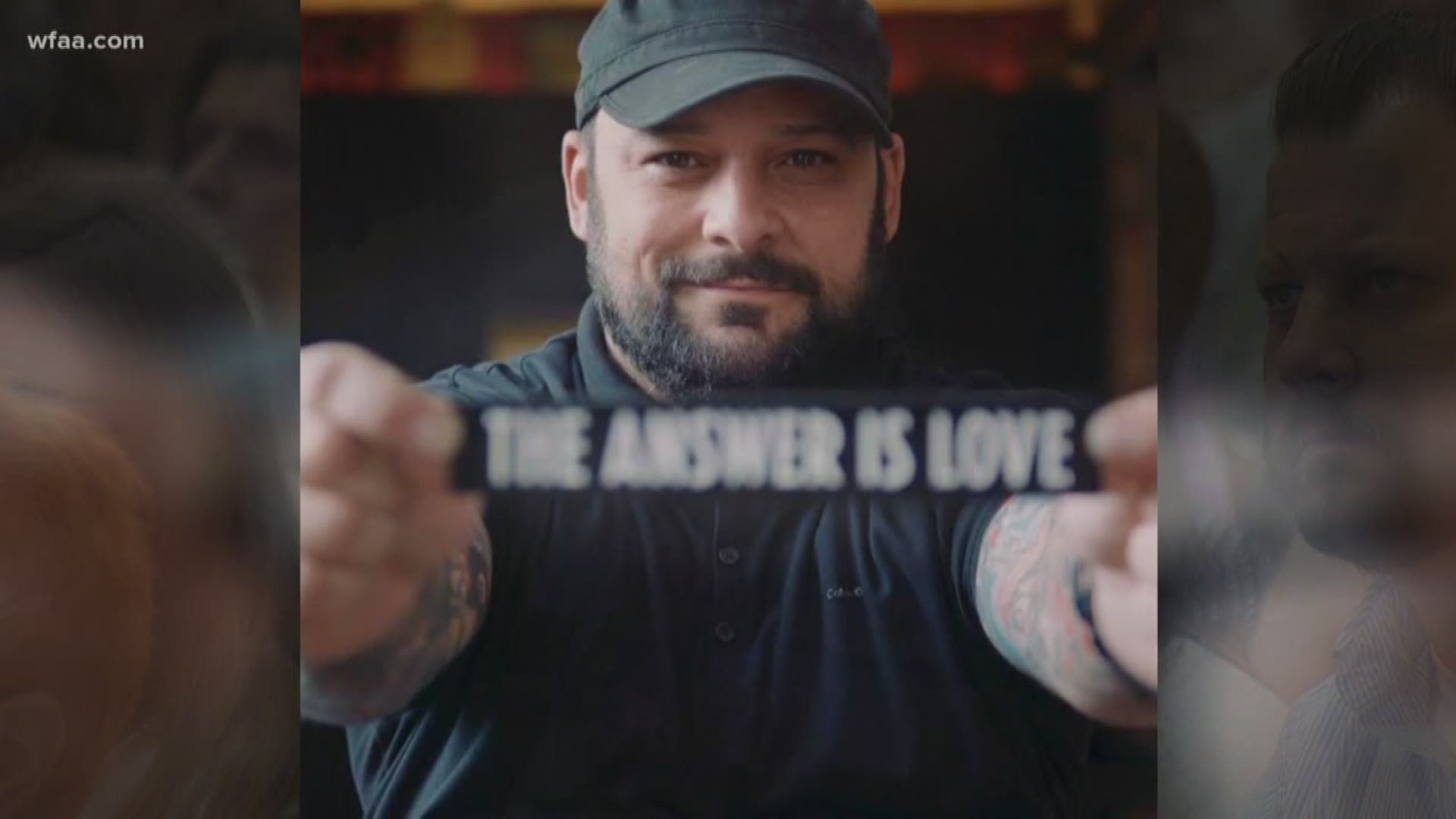DALLAS - You'd never know it when you see him now.
But Christian Picciolini was once the leader of a violent neo-Nazi skinhead group in Chicago.
"I felt really marginalized growing up, I was bullied, I didn't have a lot of friends. I was kept inside of a bubble," said Picciolini.
That sense of isolation made him vulnerable, he said, when a man named Clark Martell approached him in an alley in the 1980s. Picciolini was 14.
"He promised me a community, an identity, and a purpose and I grabbed it because I wasn't able to find that, up until then," said Piccionlini. "It wasn't about ideology or politics. I had no idea about that. But what drew me in was this lifeline of belonging to this group."
Picciolini said Martell, the leader of the first organized neo-Nazi skinhead group in America, first reinforced a sense of pride in Picciolini's Italian heritage, then told him other ethnic groups were trying to take it away.
For the next eight years, Picciolini attacked people of color, eventually becoming head of the group when Martell went to prison.
He recruited others. He used music as a tool, leading a white supremacist punk band. He denied the Holocaust, even taking a picture hailing Hitler outside a concentration camp during a visit to Germany.
"The hate was really self-loathing. It was me hating other people because I was projecting my own pain," said Picciolini.
But little by little, Picciolini started seeing the people he hated as human.
"I started receiving compassion from people I least deserved it from at a time when frankly I least deserved it," said Picciolini.
People from different backgrounds walked into Picciolini's record store, which he initally opened to sell white supremacist music, and started conversations with him.
"It was those conversations that allowed me to stop the demonization going on in my head and replace it with humanization," said Picciolini. "I actually had a lot more in common with them than the people I surrounded myself with."
He remembers one night, he was among a group beating a black teenager.
"His eyes were swollen, his face was covered in blood. And his eyes kind of opened and mine connected with his and I felt instant empathy for this person that I was trying to kill," said
It was his last violent act.
He disengaged from the group completely at age 22.
"I've dedicated the last 20 years of my life to trying to dismantle what it was I helped build," he said.
Thursday night, he spoke at the Dallas Holocaust Museum's Upstanders series.
"All the things we might be hearing about white males being under attack and white European culture being under attack are completely false," he said.
Holocaust survivor Max Glaubin sat in the front row.
"Our opinion can be changed for the good if we desire as individuals," said Glaubin.
But the seeds Christian sowed all those years ago still have roots.
Months before the church shooting in Charleston, South Carolina, Dylan Roof posted some of Picciolini's old lyrics.
"I do think there's a resurgence. I do think it's become an epidemic," said Picciolini.
That's why Christian now travels the country, lifting others who are vulnerable, isolated, and like him, turned to hate.
"I don't look at them as monsters," said Picciolini. "I look at them as that kid who I was at 14 years old who was misled and who need to be guided back."
When he talks with them, he listens. He introduces them to people from different backgrounds. He works to guide them back to empathy, compassion, and inclusion. Not just for those they hate, but for themselves.
Picciolini recently started the Free Radicals Project, aimed at helping people in hate groups disengage. If you'd like to find out more, click here.

